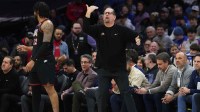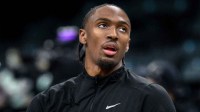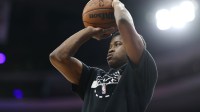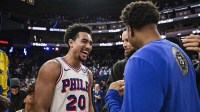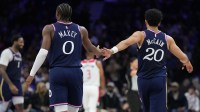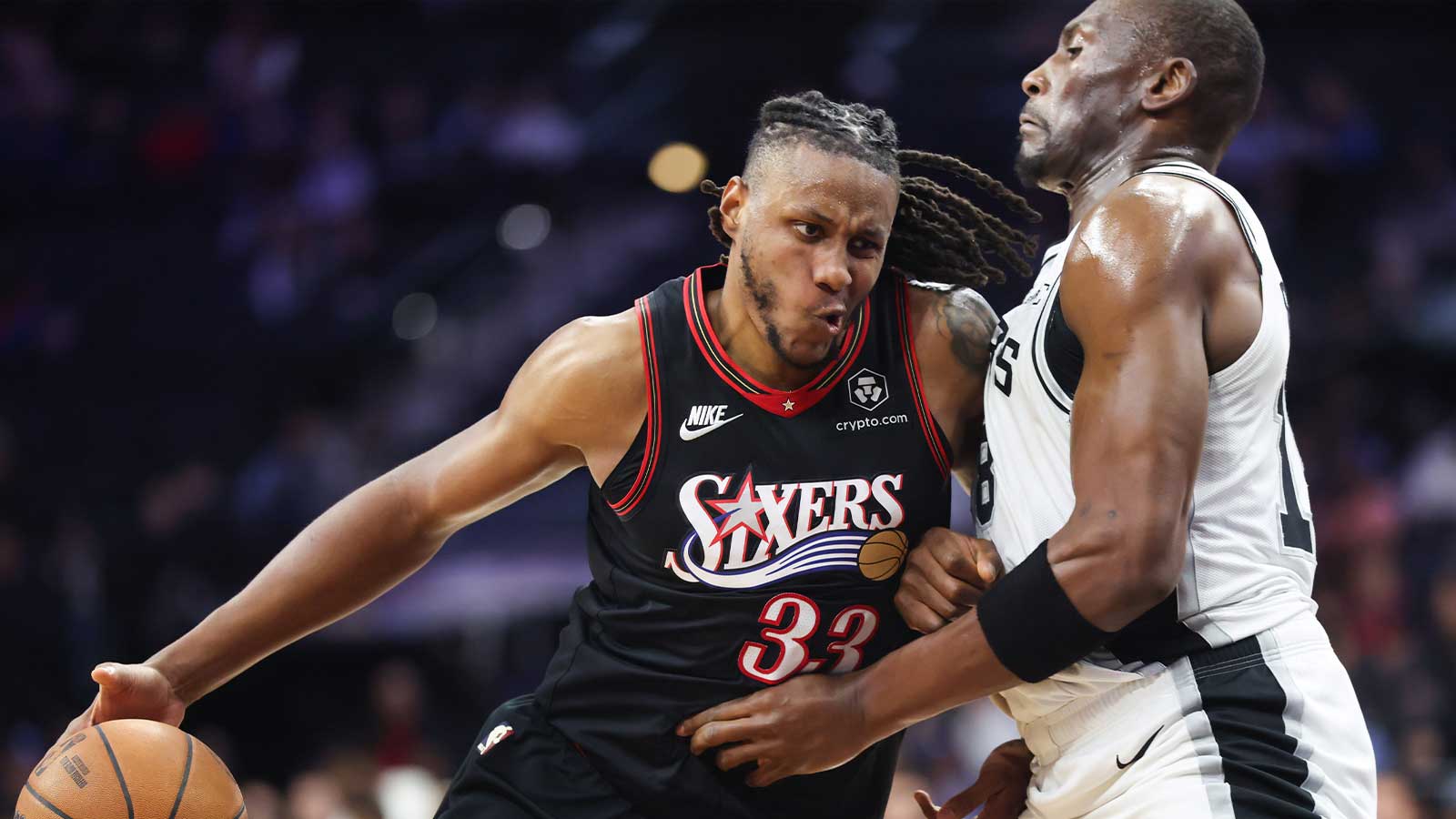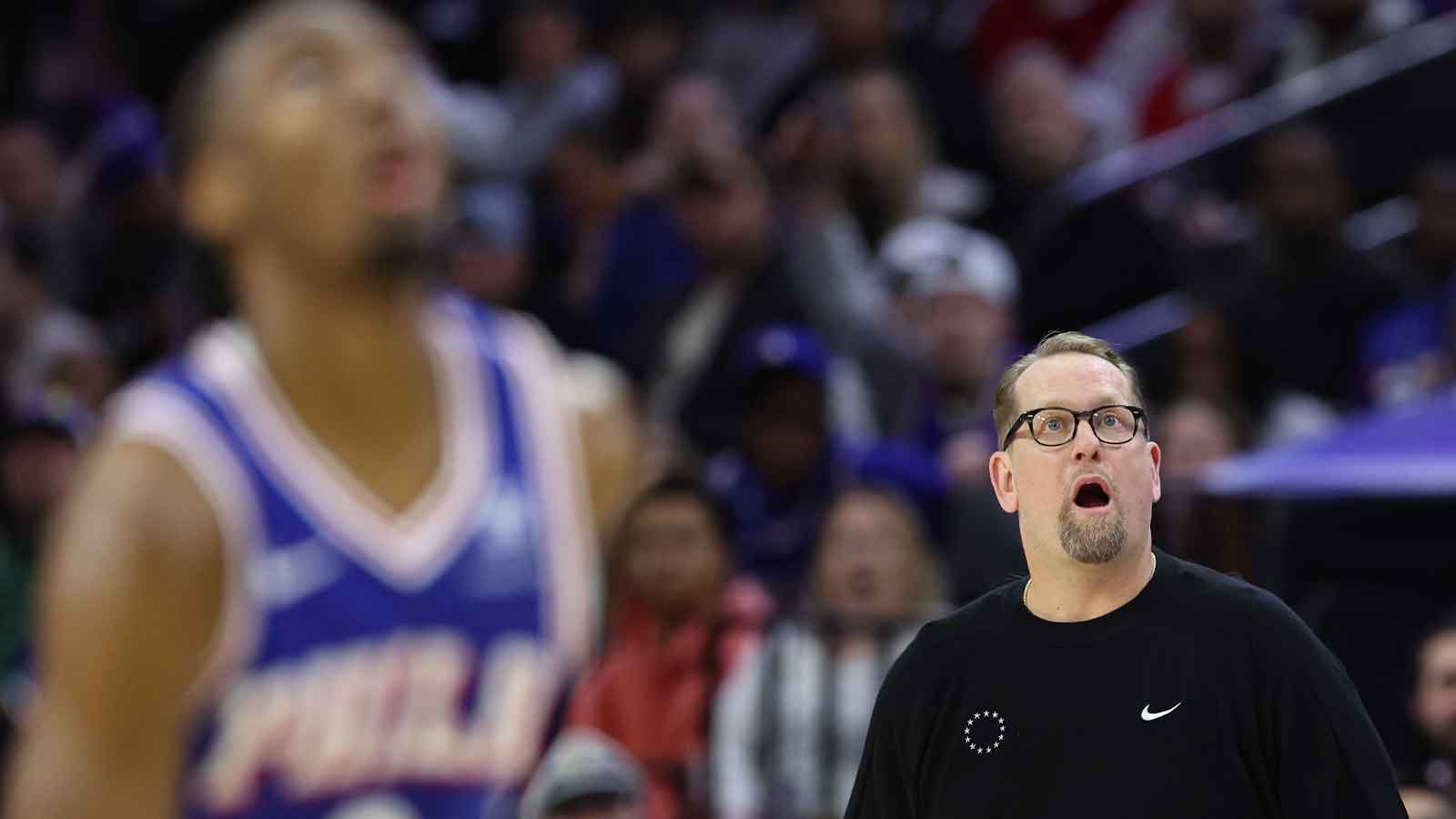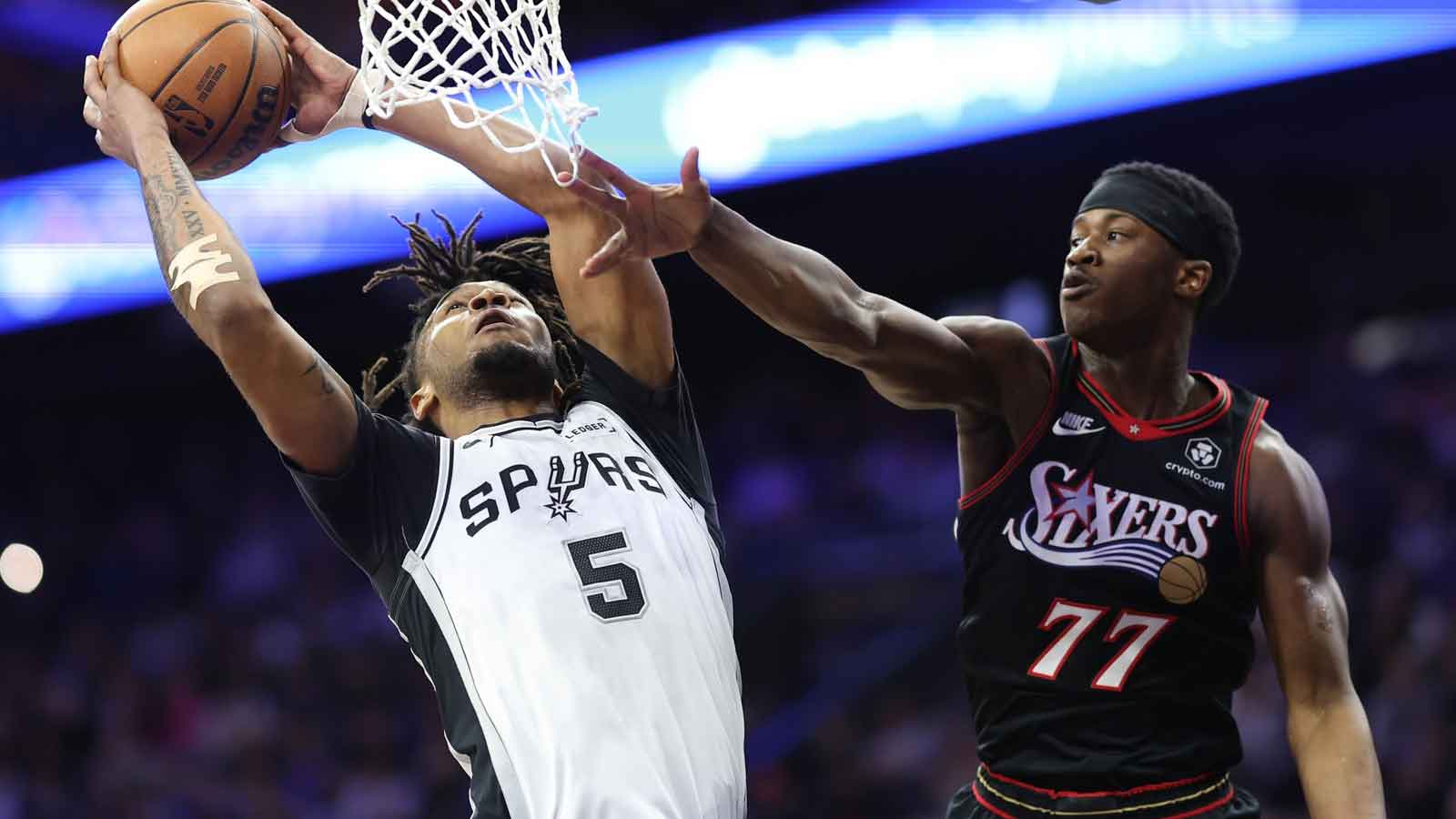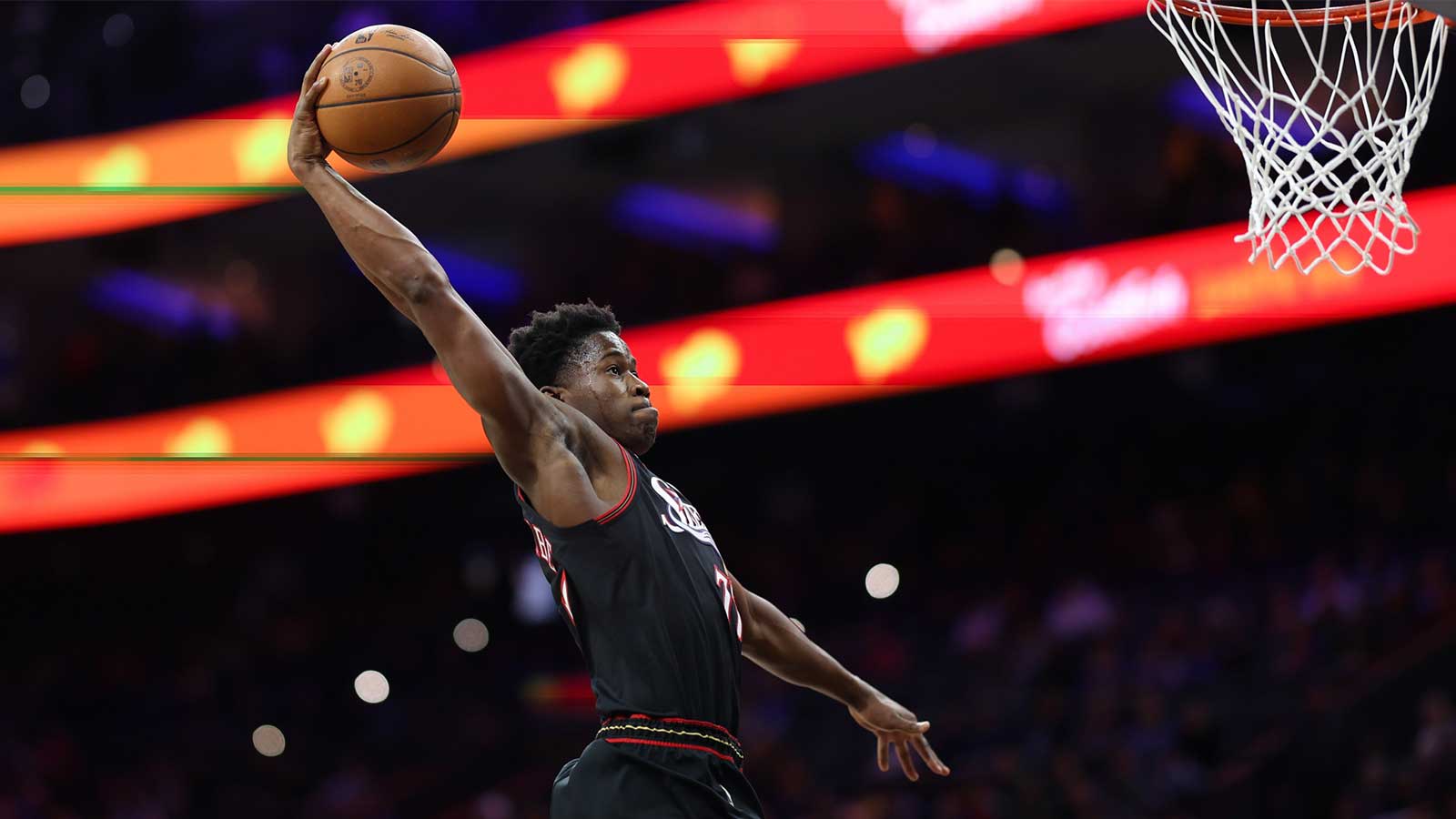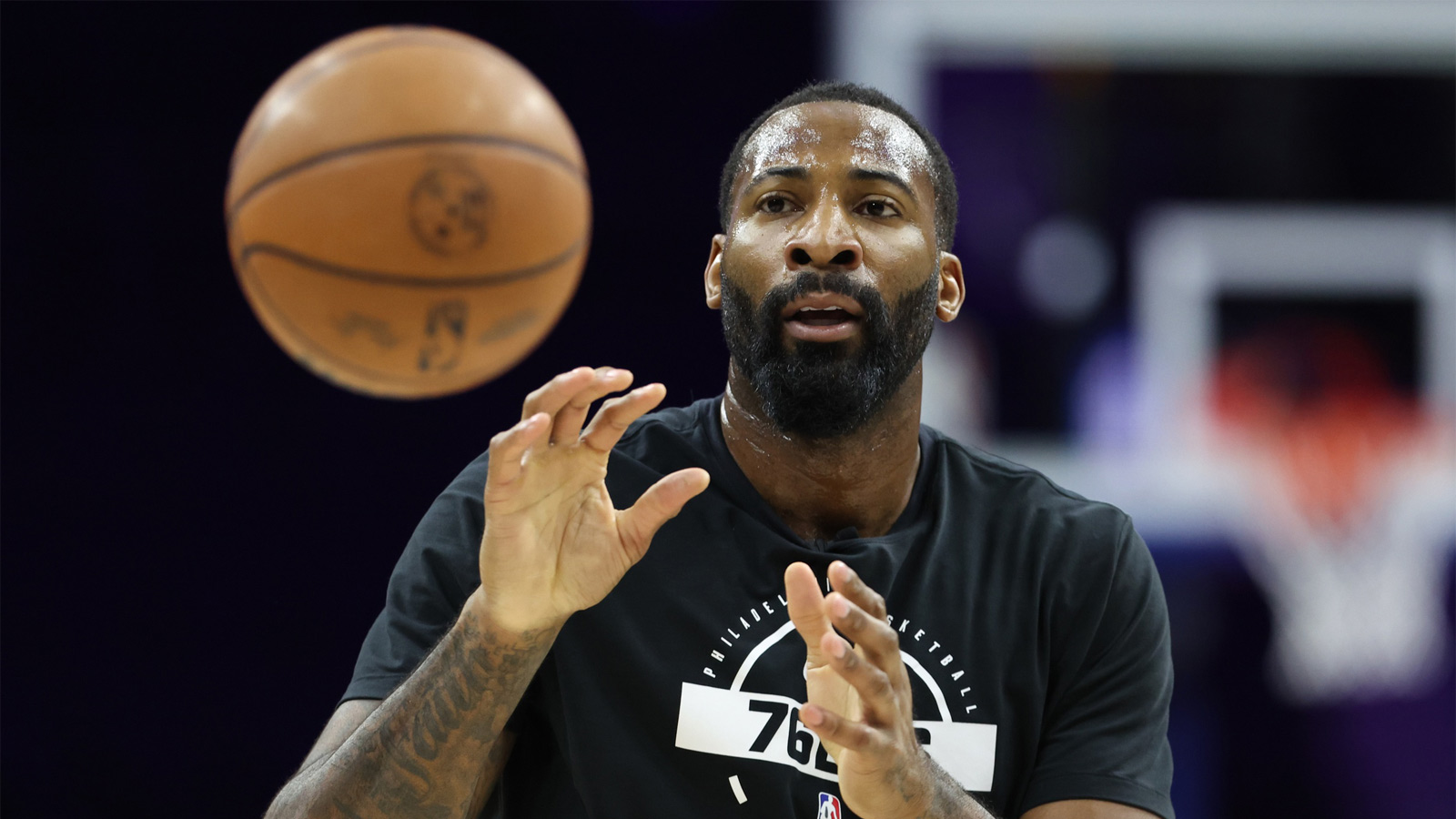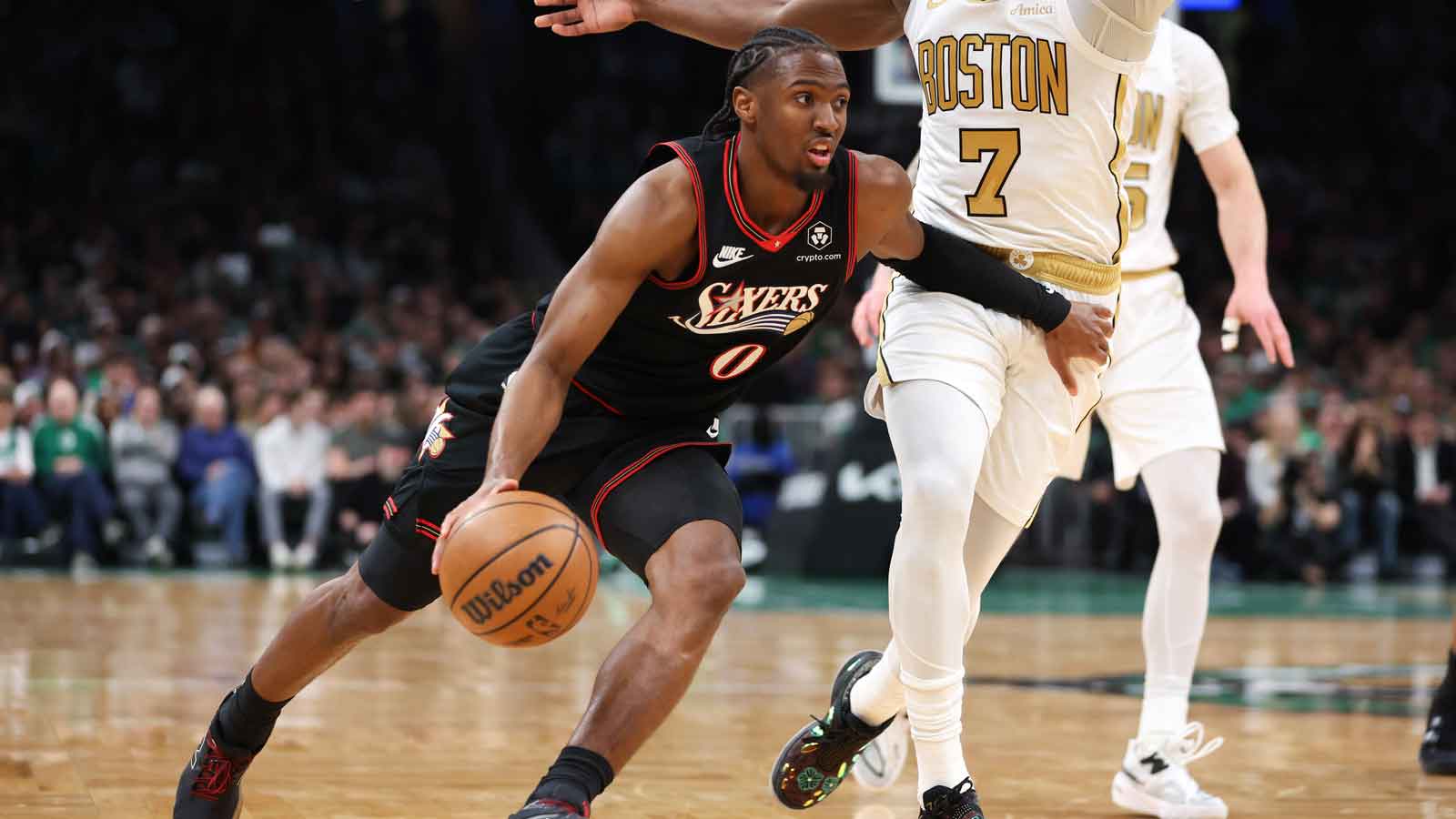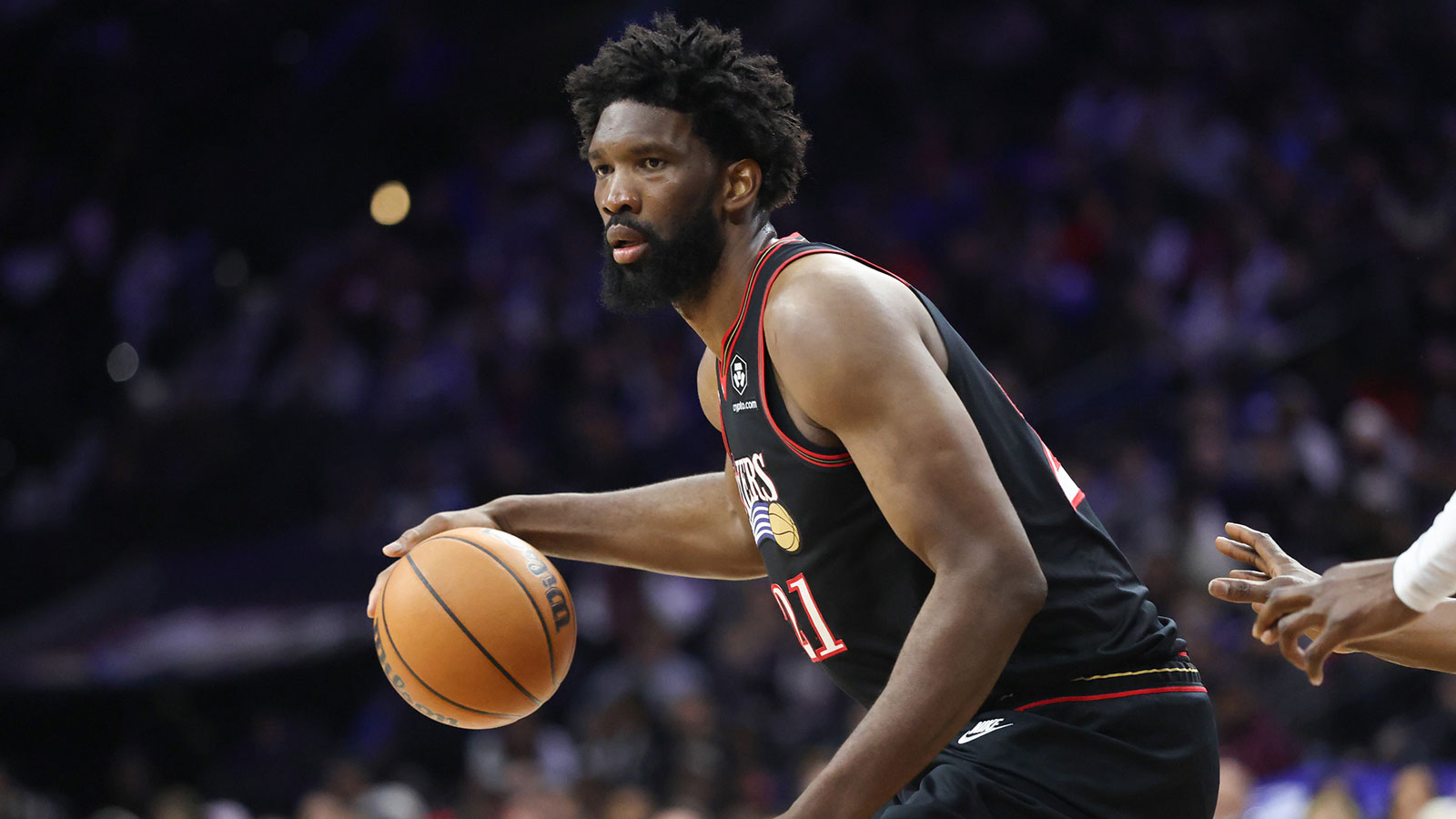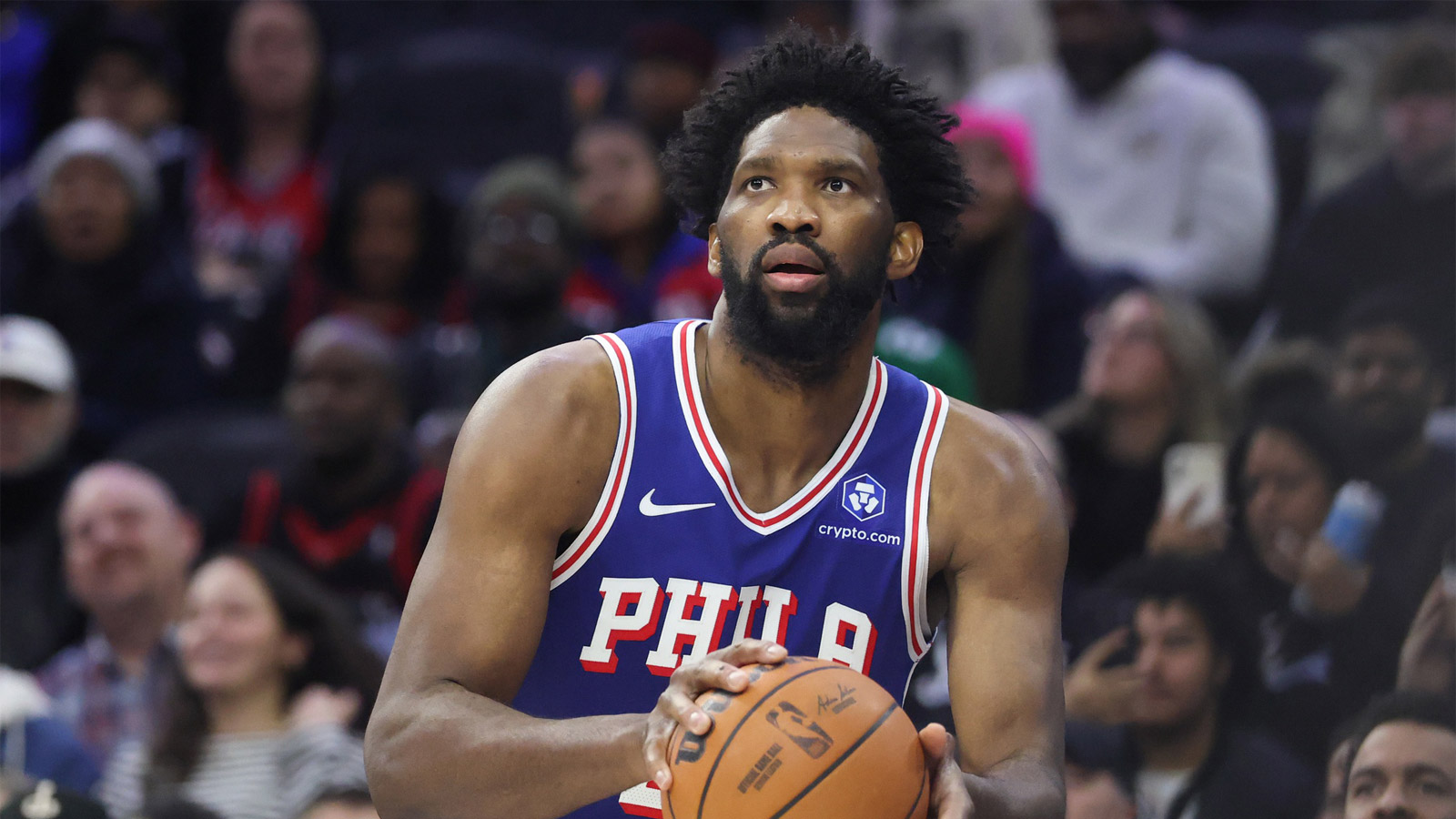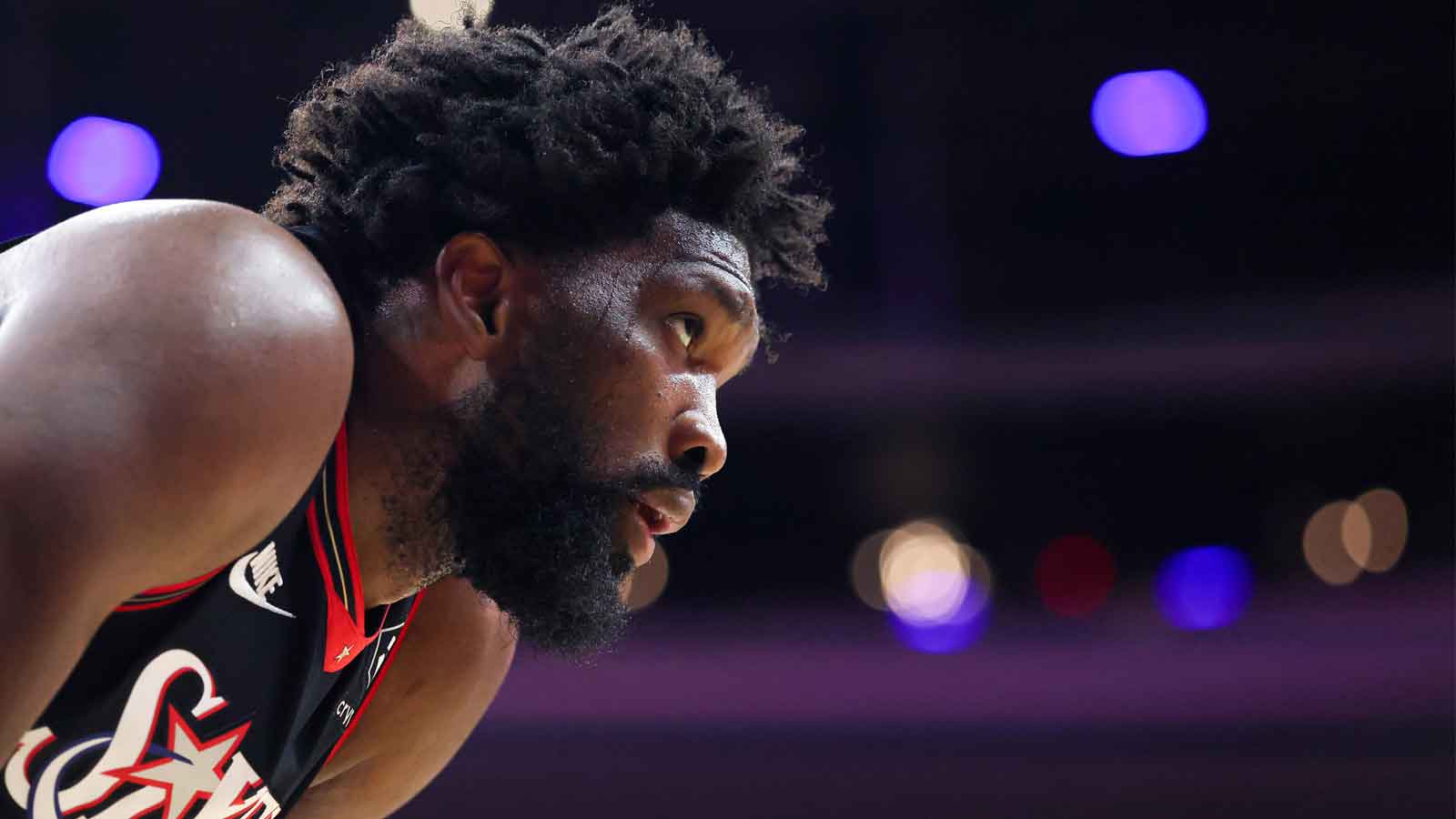The Philadelphia 76ers and Golden State Warriors faced off on ESPN and provided a mostly close contest despite the teams missing a combined five starters due to injuries. The Warriors dominated to start but the Sixers eventually pulled even and then pulled ahead, winning their fourth straight game by a score of 118-106.
Joel Embiid recorded 34 points and 13 rebounds while James Harden added 27 points and nine assists. For Golden State, Jordan Poole scored 29 points, Kevon Looney stuffed the stat sheet with 14 points, 11 boards and nine dimes and Donte DiVincenzo did the same with 17 points, 10 boards and six assists. Stephen Curry, Draymond Green, Andrew Wiggins, Tyrese Maxey and Tobias Harris were all out.
Here are three key reactions to the Sixers' victory over the Warriors.
3. Warriors gave Sixers a big scare
Although the Sixers weren't changing their approach against the Curry-less Warriors, they didn't start the game like it. They underestimated the heart of a championship-winning team, allowing Golden State to shoot the lights out to start the game.
The Sixers' defense was abysmal to start. Miscommunications and slow off-ball rotations allowed the Warriors to do their usual thing of going berzerk from beyond the arc, as they shot 9-13 from deep in the opening frame. DiVincenzo had five of those by himself. Golden State set plenty of screens and used them well, freeing up either a shooter or someone to get downhill and kick it out to one.
Harden scored 15 points in the first quarter to help the Sixers stay within striking distance of the red-hot Warriors. Kevon Looney played the part of Draymond Green by making the right passes and applying pressure on defense. DiVincenzo did his best Splash Brother imitation before letting Poole take back the leading role. Eventually, Philadelphia got back into it and took command.
The Sixers stuck around and outscored the Warriors in the final three quarters. Embiid started getting more involved in the scoring, De'Anthony Melton provided a little bit of everything and the other Philly role players hit shots and got more of their own. The more talented team on the floor eventually won out but it was anything but guaranteed.
Curry's absence was the headliner but the Sixers were dealing with injuries themselves, including Harris as a late scratch. Still, they didn't have any business letting such an injury-riddled team that had already played two road games over the prior three days hang around with them for that long. Ultimately, they secured the win anyway.
2. Harden can still get buckets
Upon his return from injury, Harden made his biggest impact as a playmaker. But against the Warriors, it was his scoring that made him the most useful. After recording 12 assists in his last three games, he recorded only nine tonight. He had an even bigger imprint on the game with his scoring abilities.
Harden scored 15 points in the first quarter and tied with Embiid at halftime with 17 points. Although his scoring slowed down, the Sixers needed Harden's first-quarter outburst. They scored 33 points but allowed 38 as the Warriors made life tougher on Embiid.
JAM3S. pic.twitter.com/dlq7NVLtE0
— Philadelphia 76ers (@sixers) December 17, 2022
Harden got back to dishing to find Embiid for a pair of jumpers to start the second half. He kept up the scoring, too, with some buckets and foul shots. With Embiid sitting, he did a solid job orchestrating the offense, with Melton (15 points), Georges Niang (11 points) and Shake Milton (11 points) providing some key scoring.
The Sixers will need Harden to be as much of a dual threat as possible with Tyrese Maxey still sidelined, which could be a while. Even the most optimistic outlooks leave Philly without him for a few games. The Beard has bounced back from his rough return game to help ignite a winning streak. Embiid, of course, still led the way but can't routinely do it alone. Harden played his part as second fiddle beautifully against the Warriors.
1. Good pace, good results (and vice versa)
The word “pace” has been a popular one with Sixers coach Doc Rivers, who is constantly referring to it. Tonight's contest was an example of how important playing with pace is.
Rivers defines pace as how quickly and efficiently the offense works, more so in the context of plays and urgency than getting a shot up as soon as possible. In the first half, it felt like they needed more of that despite solid starts from Harden and Embiid to keep up with Golden State. The bench unit played with none of it at the beginning of the second quarter, though neither did Golden State's reserves. The tides began to turn in the second half, especially as the Sixers pushed the pace (in its traditional sense).
To most basketball fans, pace refers to how many possessions teams get by either playing up-tempo and relying on fast breaks or playing slower and focusing on the halfcourt offense. The Sixers did a solid job playing with pace in the traditional setting once they got stops. In the third quarter, they got out in the fastbreak to help extend their lead. Forcing turnovers also helped the Sixers get fastbreak opportunities. The Warriors helped use this formula to open up their early lead but lost out on those chances as Philly's defense woke up and the shots stopped falling.
Oftentimes, Embiid made the Sixers' fastbreaks even more effective by…not participating in them. He often served as the trailer in transition, which allowed him to walk into open triples or get some momentum going to the hoop, both of which were useful. Since he was doing damage on the glass (rebounds), it made sense for him to stay back and either get the halfcourt offense going or take advantage of the commotion caused in transition.




